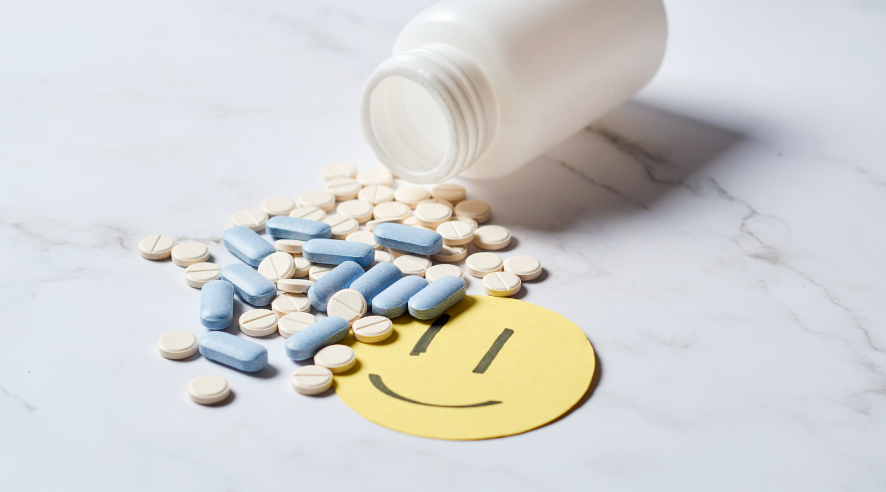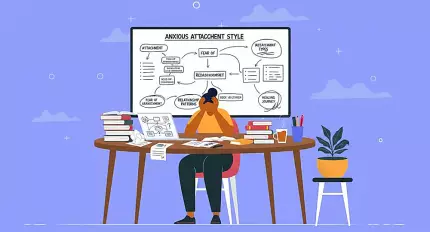Anxiety Pills: A Lifeline for People with Anxiety Disorders
- 18 February 2023

Anxiety is a natural response to stress, but for some people, it becomes an overwhelming and debilitating condition that interferes with daily activities. Anxiety disorders are the most common mental health conditions, affecting millions of people worldwide. Fortunately, there are effective treatments available, including anxiety pills, that can help manage symptoms and improve the quality of life for those with anxiety disorders.
What are Anxiety Pills?
Anxiety pills are medications that are used to treat various anxiety disorders, including generalized anxiety disorder (GAD), panic disorder, social anxiety disorder, and specific phobias. These medications are also known as anxiolytics or tranquilizers, and they work by reducing the symptoms of anxiety, such as excessive worry, fear, and nervousness.
Types of Anxiety Pills
There are several types of anxiety pills available, and each works in a slightly different way. The most common types of anxiety pills include:
Benzodiazepines
Benzodiazepines are a class of drugs that are commonly used to treat anxiety disorders. These medications work by enhancing the activity of a neurotransmitter in the brain called gamma-aminobutyric acid (GABA), which helps to reduce the symptoms of anxiety. Examples of benzodiazepines include alprazolam (Xanax), clonazepam (Klonopin), diazepam (Valium), and lorazepam (Ativan).
Selective Serotonin Reuptake Inhibitors (SSRIs)
SSRIs are a type of antidepressant medication that is also effective in treating anxiety disorders. These medications work by increasing the levels of serotonin in the brain, which is a neurotransmitter that regulates mood. Examples of SSRIs include fluoxetine (Prozac), sertraline (Zoloft), and paroxetine (Paxil).
Serotonin-Norepinephrine Reuptake Inhibitors (SNRIs)
SNRIs are another type of antidepressant medication that is used to treat anxiety disorders. These medications work by increasing the levels of serotonin and norepinephrine in the brain, which are neurotransmitters that regulate mood and anxiety. Examples of SNRIs include duloxetine (Cymbalta) and venlafaxine (Effexor).
Beta Blockers
Beta blockers are medications that are commonly used to treat high blood pressure, but they are also effective in reducing the physical symptoms of anxiety, such as a rapid heartbeat, sweating, and trembling. Examples of beta blockers include propranolol (Inderal) and atenolol (Tenormin).
Benefits of Anxiety Pills
Anxiety pills can be extremely beneficial for people with anxiety disorders. They can help reduce the symptoms of anxiety, improve mood, and increase the overall quality of life. Some of the benefits of anxiety pills include:
Rapid Relief of Symptoms
Anxiety pills can provide rapid relief of symptoms, which can be especially helpful during a panic attack or a particularly stressful situation.
Improved Functioning
By reducing the symptoms of anxiety, anxiety pills can help improve functioning in daily activities, such as work, school, and social interactions.
Fewer Side Effects than Other Treatments
Anxiety pills generally have fewer side effects than other treatments, such as cognitive-behavioral therapy or electroconvulsive therapy.
Long-Term Use is Safe
Most anxiety pills are safe for long-term use and do not lead to addiction or tolerance, as long as they are used as prescribed.
Main points:
Rapid Relief of Symptoms: Anxiety pills work quickly to alleviate symptoms of anxiety, such as excessive worry, fear, and nervousness. Benzodiazepines, for example, can provide relief within minutes of taking them. This rapid relief can be especially helpful during a panic attack or a situation that is causing intense anxiety.
Improved Functioning: By reducing the symptoms of anxiety, anxiety pills can help people with anxiety disorders function better in their daily activities. For example, someone with social anxiety disorder may be able to attend social events and interact with others more comfortably. Someone with GAD may be able to focus better at work or school.
Fewer Side Effects than Other Treatments: Compared to other treatments for anxiety disorders, such as cognitive-behavioral therapy or electroconvulsive therapy, anxiety pills have fewer side effects. However, some common side effects of anxiety pills include drowsiness, dizziness, and confusion. Benzodiazepines can also cause physical dependence if used for long periods of time.
Long-Term Use is Safe: Anxiety pills are generally safe for long-term use and do not lead to addiction or tolerance, as long as they are used as prescribed. However, some medications, such as benzodiazepines, can lead to physical dependence if used for long periods of time. It is important to work with a healthcare professional to determine the appropriate dosage and duration of treatment.
How to Use Anxiety Pills Safely
While anxiety pills can be effective in treating anxiety disorders, it is important to use them safely. Here are some tips for using anxiety pills safely:
Follow the prescribed dosage: It is important to take anxiety pills as prescribed by a healthcare professional. Do not take more than the prescribed dose or take them more frequently than prescribed.
Be aware of potential side effects: Some common side effects of anxiety pills include drowsiness, dizziness, and confusion. Be aware of these side effects and avoid activities that require alertness, such as driving or operating heavy machinery, until you know how the medication affects you.
Avoid alcohol: Alcohol can increase the sedative effects of anxiety pills, so it is important to avoid drinking alcohol while taking these medications.
Do not stop taking medication abruptly: If you decide to stop taking your anxiety medication, do not stop abruptly. This can lead to withdrawal symptoms, such as rebound anxiety, insomnia, and seizures. Work with a healthcare professional to safely taper off the medication.
In conclusion, anxiety pills can be a lifeline for people with anxiety disorders. They can provide rapid relief of symptoms, improve functioning, and have fewer side effects than other treatments. However, it is important to use anxiety pills safely, following the prescribed dosage, being aware of potential side effects, avoiding alcohol, and not stopping medication abruptly. If you or someone you know is struggling with anxiety, talk to a healthcare professional to determine if anxiety pills are a suitable treatment option.




